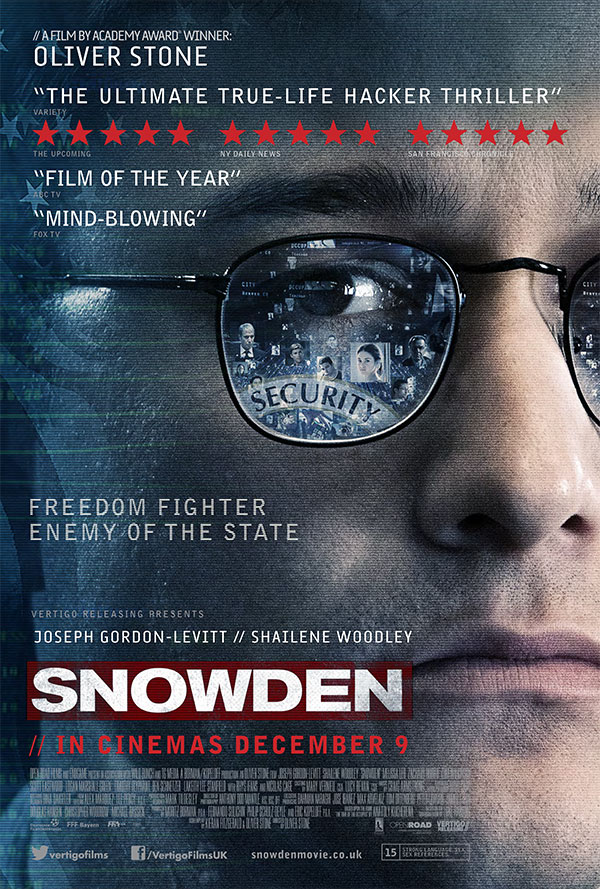Snowden, 15, 134 mins, Vertigo Films / Open Road.
In his finest film in decades, Oliver Stone, a director at the very forefront of tackling cultural milestones, now chronicles that most divisive and polarising of figures; Edward Snowden.
Snowden leaked thousands of the NSA’s classified documents to the press, claiming they flouted constitutional rights to privacy.
So little of the inner-workings of what actually happened are known to the public, so Stone is set that most difficult of tasks, but crafts an utterly gripping, totally compelling cinematic exposé, into just how contentious the issues surrounding our collective securities and individual identities really are.
It so easily could’ve been ploddingly pedestrian, or get bogged down in being a hot-button subject of such recent history, too top-heavy with gaggles of smart-phones and social-media platforms.
The fact that it didn’t, is so profoundly due to Joseph Gordon-Levitt’s terrific, transcendent performance. As with the entire execution of the film itself, his central performance is so expertly understated. He’s always been such an incredibly subtle, confident actor; it really can just be an empathetic move of the eyes or incline of the head - and you reach into his very soul. This is all the more revelatory despite him being too conventionally smooth to really look like Snowden, but he certainly sounds like him with those mannered, dulcetly flat monotones - awards recognition is so long overdue.
Supporting turns are also strong: Shailene Woodley infuses human vitality into Snowden’s girlfriend Lindsay. If I’ve a singular problem with the structural choices; foregrounding their fraught romance - over pulsing thrills - may become a little insouciant.
That’s far from saying the film is devoid of tension: the sequence where the files in question are gradually uploaded to a USB-stick concealed in a rubics-cube to avoid detection is the film’s real pin-drop moment, as is Rhys Ifan’s capricious snake of a task-master, revealing private doubt in giant-screen form. Joely Richardson is icy as a spiky Guardian editor, and Craig Armstrong’s bubbling, synth-inspired score adds to the conspiratorial chill of paranoia - in a fascinating account of the ambiguity of freedom, authority, and morality. In my top two films of 2016.
Rating: * * * * *

No comments:
Post a Comment